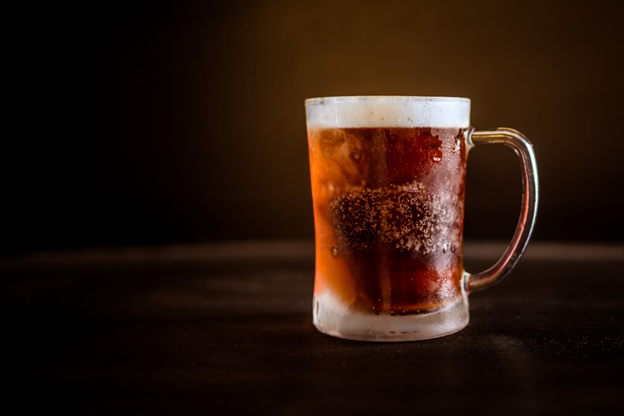Amateur brewers often avoid fruit beer due to concerns about microbial contamination and product contamination. However, with proper knowledge, fruit beer can be made with genuine fruit flavours without contamination. Fresh fruit is preferred. However, fruit concentrate, purées, or juices can be used safely, as they are hygienic and don’t require waiting for fruit season. Avoid using fruit-based products like sugar, citric acid, or preservatives, as they can damage yeast. Fruit beer can be made from fresh or frozen fruit or frozen or homemade fruit when the fruit is out of season.
Fruit-based beer brewing
Freezing fruit cells during freezing can enhance fruit flavour and scent in beer, making fermentation faster and more robust. Fermentable concentrated fruit juice tastes better than watered-down juice, but juice concentration should be adjusted. Adding fruit during brewing may undermine beer purity due to certain fruits’ pectins, sugars, and proteins, and ageing may cause issues. Remember, search https://www.vintagecellars.com.au/beer/rekorderlig-range for reliable, delicious options.
● Mango blonde ale
With its light texture, blonde beer’s fruity mango and dried hibiscus smells stand out. This is because blonde lagers are thin. You’ll soon be picturing yourself on a sandy beach listening to the sea.
● Dark night
Radical Brewing’s recipe for a black beer with witbier flavour, featuring tangerine zest after yeast fermentation, produces a porter with a milkshake-like texture and taste.
● Strawberry lager
This beer can be made using American Lager, Light Lager, or Lager Pils as the foundation style, with wheat beers also available.
● POG IPA
The IPA Brewing Company’s India Pale Ale, brewed with passion fruit, oranges, and guava, is a tropical fruit juice with a stimulating taste.
● Belgian blond ale
Fresh blackberry-flavoured beer, naturally carbonated, is refreshing and crisp. Add 5 kilograms of blackberries for 36-40 litres of must, yielding 36-40 litres.
Making fruit beer
Wheat beer with minimal hops is ideal for foundation beer, while maltier beers with balanced flavours are acceptable. Low-alpha hops are consistent and ferment faster than high-alpha yeasts. Proper hop proportions and malt and fruit-specific gravity ensure the perfect beer flavour.
Fruit selection for beer
The final beer drinker should keep the fruit intact and use supermarkets for access. Unripe fruits can be added to beer to change flavour.
Fruit purees, syrups, and concentrates
Home-brewed beer can be improved by adding purees and juices, ensuring it doesn’t contain preservatives or other chemicals, as these can complicate fermentation and inhibit yeast development.
Real fruit
Fresh fruit is seasonal and can be checked for ripeness, form, and proximity. It can be grown or found wild. Preparation, such as chopping, mashing, or pureeing, is essential to ensure clean and delicious consumption.
Concentrated juices
Combining extracts and essences can yield excellent results, but be cautious when making multi-outcome judgments, as too much fruit flavouring may make the beer taste false.
Frozen foods
Blending frozen fruit with beer is a fun and cost-effective way to preserve fresh fruit’s flavour and sweetness. Frozen fruit doesn’t expire and requires less preparation, making it ideal for breweries who want a more flavourful and sweet beer.
Improper fruit handling can cause product contamination, and brewers should avoid using fruit concentrates, purées, and juices. Avoid adding fruit extract or artificial flavourings to beer, as they can damage quality. Avoid preservatives and other additive ingredients in beer. Find the combination that YOU love and you won’t go wrong.
